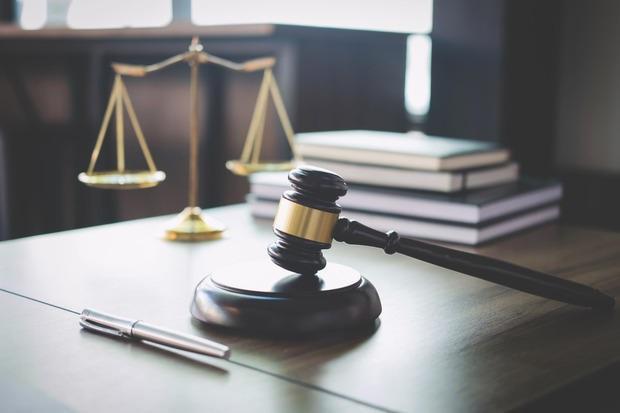A contract signed by a false attorney without the power of representation will be ineffective once the deed is concluded and will not produce its effects.
What are the consequences of a false power of attorney?
In the event of signing a contract, it may happen that one of the two parties has acted in the name and on behalf of another person: in this case, the person who has concluded the contract on search of a third party. What happens if the power of attorney was false?
What are the consequences of the behavior assumed by the false manager?
Unfortunately, those who will suffer the negative consequences of a false power of attorney are those who have contracted falsely trusting in the existence of a power of attorney since they will see the act they were interested in carrying out invalidated.
False Procurement – photo Getty Images
The law primarily protects the person who has been falsely represented by claiming that the contract thus signed is void.
What is representation?
Let us start from the assumption that the parties to the contract may be different from the parties to the legal relationship that it constitutes, regulates or extinguishes according to the definition given in Article 1321 of the Civil Code. This happens when the phenomenon of representation: a subject, the representative, participates in the conclusion of the contract with his own declaration of will.
Another subject, the represented, is subject to the legal effects of the declaration of will of the representative, as he acquires the rights and assumes the obligations that derive from the contract. By granting others the power of representation, the represented subject is manifesting his autonomy even if he does not directly express his will. In fact, rather than personally drafting the contract, he prefers to entrust others with the task of carrying out the act, accepting to remain bound by the will declared by others.
What is the power of attorney?
In the case described, the contract is stipulated after one of the parties has been issued with a search.
What is the power of attorney?
The power of attorney is therefore the declaration of will of the represented party with which the representative power to another subject.
This is a unilateral act not receptive since it does not require any acceptance; it is not addressed to a specific recipient, but to the generality of third parties before whom the represented person legitimises the person who has received the power of attorney to stipulate contracts in his name.
The power of attorney can be specialthat is, to concern a single specific matter or generaland in that case it concerns a specific series of affairs.
The power of attorney must have the same form of the contract of contracts to be concluded, therefore the power of attorney to sell or buy a property must also be drawn up in writing.
Power of Attorney Requirements
In order for the contract stipulated by the attorney to be effective, the power of attorney must meet certain conditions:
- The representative must conclude the contract on behalf of the represented party;
- the representative must conclude it within the limits of the powers conferred upon him;
- the representative must conclude it in the interest of the represented party or on behalf of the latter.
We can therefore note that it is not sufficient, for the stipulated contract to be valid and effective, that it is concluded in the interest of the represented party, since the spending of the name of the represented subject, or the so-called contemplatio domini.
 Ineffective contract in case of falsus procurator – photo Getty Images
Ineffective contract in case of falsus procurator – photo Getty Images
It’s coming stipulated and contract in written form, it is necessary to mention the name of the person who will be subject to the effects of the concluded act.
Let us instead assume that the subject acts in his own name, even if on behalf of someone else, thus omitting to spend the name of the person on whose behalf he is acting.
In this case the contract will produce effects towards him and he will be the one to acquire the rights and assume the obligations deriving from the contract.
False Power of Attorney: What Happens
It may happen that someone enters into a contract as a representative of another without having the authority to do so.
This is the case in which Tizio, for example, decides to buy or sell in the name of Caio but the latter had not issued any power of attorney to buy or sell.
 Falso procuratore – foto Getty images
Falso procuratore – foto Getty images
Another hypothesis is that someone, even if invested with representative powers, exceeds the limits of these powers. Consider, for example, a power of attorney in which the subject authorized a purchase at a certain price but the attorney purchased at a higher price.
In both cases, we are talking about falsus procurator or of a false representative.
What will happen to the contract in these cases?
The false representative has acted in the name of another, therefore the contract cannot produce effects on him; he cannot acquire rights or assume obligations deriving from the act.
However, the contract cannot even produce effects with respect to the person in whose name the false representative acted, since the latter did not grant him the power of attorney or granted him a power of attorney with lesser power, with different content and greater limitations.
We are therefore faced with a contract invalid e ineffective that is, completely unproductive of effects.
What is ratification?
The person in whose name the false attorney has contracted, or his heirs, have the right to to rectify the contract despite the false power of attorney through a subsequent unilateral declaration of will called precisely ratification.
 Ratification in case of false attorney – Getty Images photo
Ratification in case of false attorney – Getty Images photo
It is aimed at remedying the original defect in the representative power of those who have contracted with a false power of attorney.
If the contract is ratified, its effects will be retroactive; this means that the transaction becomes effective from its date and not from that of ratification, which therefore assumes, even if later, the same legal value as an original power of attorney.
The liability of the false attorney
L’ineffectiveness of the contract stipulated by the false procurator, subject of course to ratification by the interested party, adequately protects the person whose name has been falsely mentioned.
The same cannot be said of the third party who trusted in the effectiveness of the contract, period. The solution adopted by the legislator, therefore, clearly sacrifices his interest.
What can the third party contractor do? protect your own interests?
 Power of representation – Getty Images photo
Power of representation – Getty Images photo
There is only one possibility: the third party contractor can turn to the false attorney and demand from him the compensation for damages suffered for having, without fault, relied on the effectiveness of the contract.
But be careful! The third party must have trusted without fault, that is, without negligence on your part.
We must in fact take into account the fact that the law places on the latter the burden of ascertaining the existence and extent of the representative powers of the person with whom he is contracting.
If he was in a position (for example by asking to see the power of attorney) with the use of ordinary management to realize that he was dealing with a false attorney, he is not even entitled to compensation for damages.
The liability of the false attorney is a liability for an unlawful act which falls within the more general figure of pre-contractual liabilityas he acted contrary to the duties of good faith and fair dealing.
The conflict of interests
A final case worth discussing is that relating to conflict of interest where the false procurator can be found.
We have previously underlined that the representative, once he has received the power of attorney, must contract in the interest of the represented party.
He cannot use the power of representation with which he has been invested to achieve his own interest rather than that of the represented party.
This situation occurs when there is a conflict of interest with the represented party, that is, when the interests of one and the other are in competition with each other and the achievement of the first involves the sacrifice of the second.
Let’s imagine the case in which a representative has a power of attorney to purchase a property and purchases the property from the company of which he is a partner.
In this case, the contract concluded by the representative in conflict of interest with the represented party is voidable upon request of the represented party only, according to the normal rules on the voidability of the contract.
Source: www.lavorincasa.it


